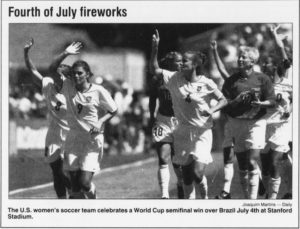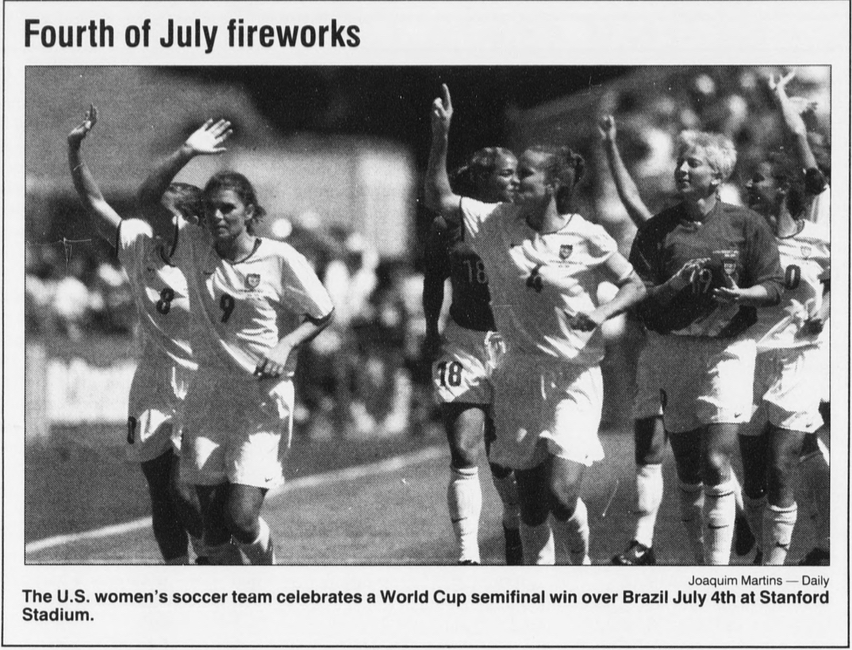The feature “On This Day in Stanford History” details unusual or humorous events that occurred on the same date or week in past years from the Daily archives.
According to The Stanford Daily archives, during the week of July 2 to July 8 on …
July 8, 1921: In a horseshoe competition organized by Coach C.S. Botsford, the director of intramural sports, Botsford and his competing partner Stanley Robinson emerged victorious in the “post bellum recreation of heaving horseshoes.” Their prize was a quart of ice cream. The horseshoe competition was part of a series of small tournaments of eclectic activities – boxing, billiards and handball – that Botsford had launched around that time.
July 6, 1984: The U.S. Supreme Court upheld the constitutionality of the Solomon Amendment, which required that those who wanted to receive federal financial aid had to register for the draft. Members of the Stanford community voiced opposition to the court’s decision, but some said they were not surprised by the ruling, claiming the court held conservative views. The University responded by introducing a policy that replaced lost federal aid with Stanford loans, which carried higher interest rates. Penalties for not complying with the Amendment included financial burdens, or jail time. However, some students felt it was a risk worth taking. “People may end up doing time or losing money because of non-registration, but it’s worth it,” said Mat Nicodemus ’84. “If we could stop the Solomon Amendment, it would make registration hard to enforce.”
July 6, 1984: In an article titled “Middle America Accepts male feminists more easily,” a staffer claimed the taboo nature of the term “feminism” had dwindled over the years but had not disappeared. The article pointed out discrepancies in the the popular American doctrine of the idea that “I’m in favor of women’s rights, but I’m no feminist.” The staffer went on to note that male feminists were met with less resistance regarding their belief in gender equality, and female feminists were often called “extremists.” The staffer claimed this was possibly because male feminists were not a threat to the social construct as “discussing political issues is a good traditional male role, so even chauvinist men can deal with the male feminists.”

July 4, 1990: South African Civil rights leader Nelson Mandela spoke at the Oakland Coliseum, urging for full economic sanctions in the effort to end apartheid. At the time, Stanford upheld a case-by-case divestment policy, claiming to only invest in companies that publicly spoke out against apartheid, but Stanford was not meeting the full force of Mandela’s vision. The case-by-case policy was announced in the 70s after active student protests.
July 4, 1999: The U.S. women’s soccer team beat Brazil 2-0 in the 1999 Women’s FIFA World Cup semifinals at Stanford Stadium. The team went on to beat China in Pasadena, and bringing home their second World Cup. Amongst the women soccer team was midfielder and Stanford alumna Julie Foudy ’92.
Contact Diva-Oriane Marty at dior ‘at’ dhillonmarty.com.
